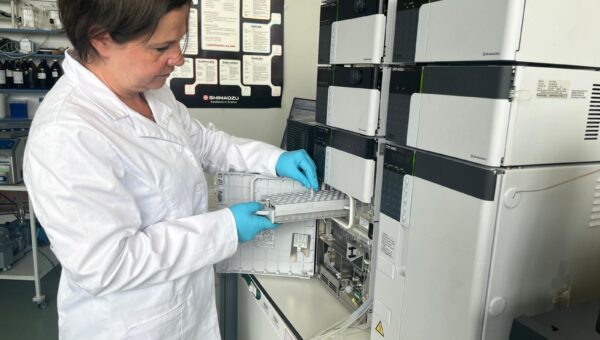Plant-Environment Interactions

As sessile organisms, plants have developed various strategies to cope with the adverse conditions surrounding them. These environmental conditions include a mix of biotic and abiotic stressors that often act simultaneously and can induce opposing plant reactions. Our group is dedicated to understanding plants’ diverse strategies following their morphological, physiological, and biochemical responses to navigate these complex conditions, aiming to improve resistance and reduce yield losses.
Our group boasts the state-of-the-art (semi)automated plant phenotyping facility Olophen, which allows us to study thousands of plants in a single run under combined stress conditions using non-invasive imaging-based approaches. Additionally, we operate a phytochemical analysis facility for quantifying a wide range of primary and secondary metabolites. Combined with our phenotyping data, this information provides a comprehensive view of plant resistance mechanisms to both abiotic and biotic stresses. Both facilities support our own and collaborative research with academic and industrial partners.
We are actively involved in various European and national projects to develop new technologies for rapidly analyzing the morphological and physiological traits of plants under different stress conditions using various sensors. Our efforts include development of affordable in-house phenotyping systems, as well as software and hardware solutions to address specific bottlenecks of phenotyping pipeline, including data analysis and processing following FAIR principles. Recently, we have integrated artificial intelligence and machine learning approaches to enhance our pipeline further.
Our research covers topics ranging from fundamental to applied research and extends beyond model plants such as Arabidopsis, barley, and maize. We also focus on other agronomically important species in collaboration with our global collaboration network that specializes in specific crops and related challenges connected to plant protection and human health. These crops include potato, rapeseed, and cannabis, among others.
Through these multifaceted efforts, our group aims to advance plant science and develop resilient crops capable of withstanding environmental challenges. These contributions support the Sustainable Development Goals (SDGs), including climate action, life on land, and zero hunger.
News




